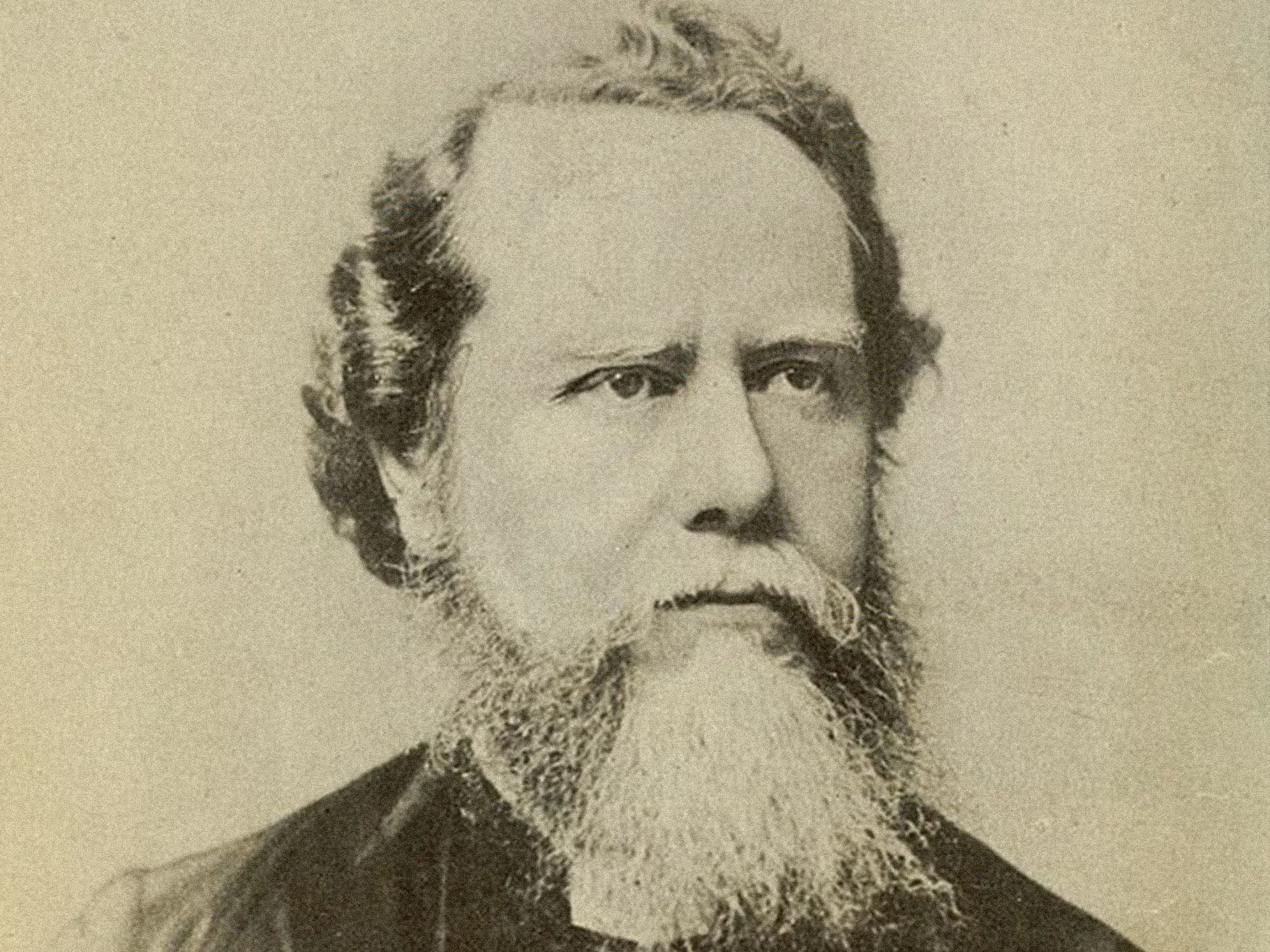“God uses men who are weak and feeble enough to lean on him.” — Hudson Taylor
If you’ve ever seen a photo of Hudson Taylor, you’ve likely seen him portrayed as a rather unusual figure—a humble-looking man with a long Chinese-style ponytail and traditional Chinese dress. And yet, this unassuming, faith-filled man is often referred to as the most influential missionary of the 19th century. Known for his adoption of local customs and culture, Taylor founded the Chinese Inland Mission (CIM), a missions organization that helped reshape Christianity in China. His faith, humility, and endurance through suffering testify to the greatness of a God, the only One worthy of glory from every tribe, tongue, and nation.
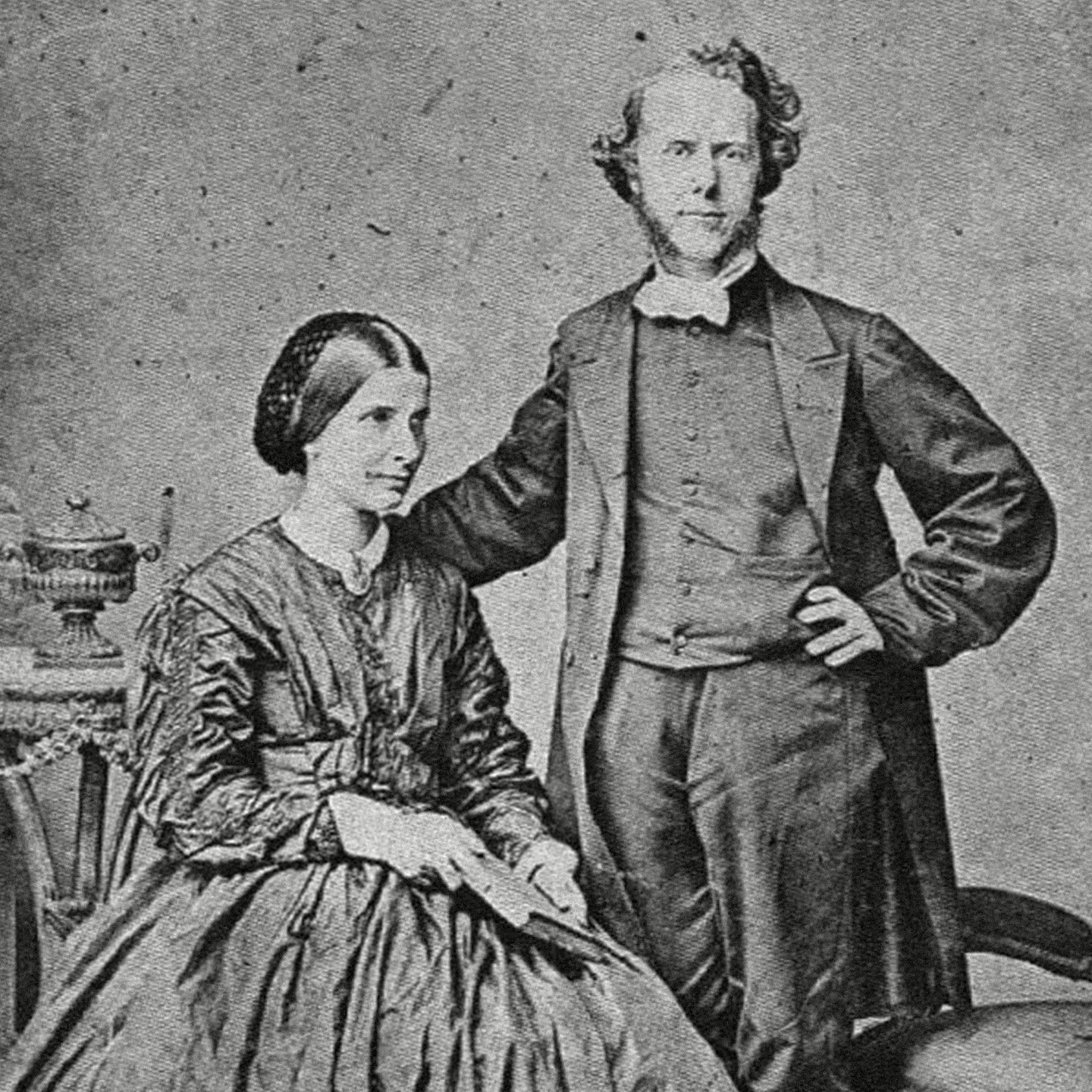
Early Years
Hudson Taylor was born in England in 1832 to devout Christian parents. His father was a pharmacist and lay preacher, and his mother was a devout and prayerful woman.
When Hudson was seventeen, his sister Amelia was burdened for his salvation. She committed to pray three times a day for Hudson until he came to faith. Around the same time, Hudson’s mother felt a growing urgency to pray that God would save her son that very day. At the exact moment of her prayer, a bored Hudson wandered into his father’s study and picked up a gospel tract. Looking simply to pass the time, he began reading and was soon convicted of his sin. That day, her prayers were answered, and Hudson surrendered his life to Christ.
Shortly after, Hudson sensed God calling him to China to share the gospel with those who had never heard it. He began preparing immediately—studying Chinese, Latin, Greek, and medicine, preaching the gospel in the streets, and trusting the Lord to provide for his daily needs. By 1854, Hudson was ready to make the grueling five-month journey to China by boat. But unfortunately, Hudson’s missionary journey would prove to be far more difficult than he imagined.
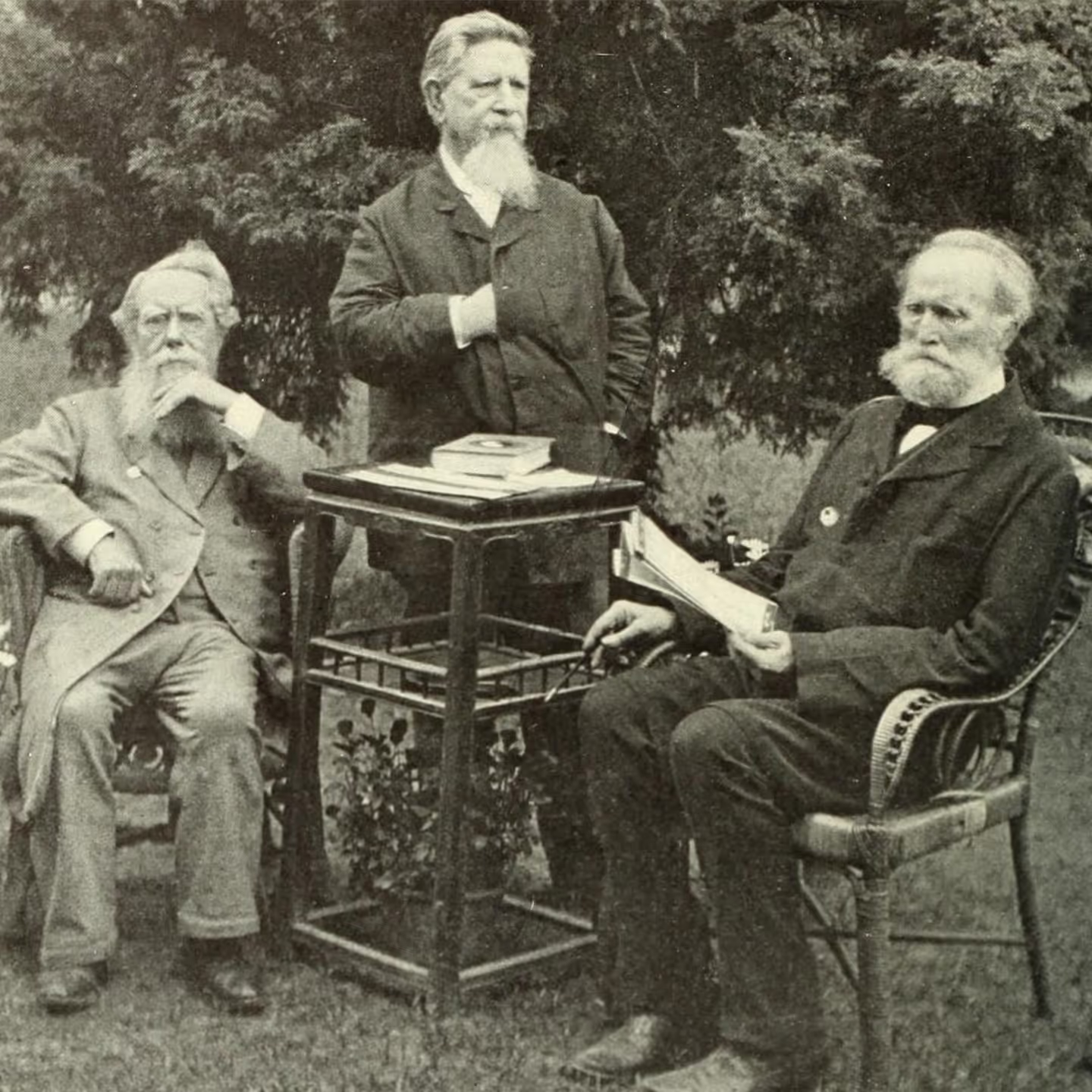
Early Ministry
When Hudson arrived in China, the Taiping Rebellion was devastating China, and eventually claimed over 20 million lives. Amid the chaos, Hudson received minimal support from his missionary agency. Disillusioned and disappointed, he soon resigned, and became an independent missionary.
During these years, Hudson chose to live not like his fellow English missionaries, surrounded by Western comforts, but like the Chinese. He wore Chinese clothing and adorned his home with simple, local decor. This bold choice sparked criticism among fellow missionaries, but Taylor stood firm, insisting that cultural barriers should never hinder the gospel. If anything were to offend or be a stumbling block, he would have it be the gospel, not a cultural preference.
A New Agency
In 1858, he married Maria Jane Dyer, the orphaned daughter of pioneer missionaries. They were married for twelve years and had eight children.
Two years later, Hudson was forced to return to England due to poor health. Even so, his passion for the Chinese people only deepened. While walking the beach in Brighton one day, Hudson felt compelled to form a new missionary organization, one that would reach all the provinces of China. So in 1865, he founded the China Inland Mission (CIM). Hudson committed to neither solicit for funds, nor engage in traditional fundraising, but to trust wholly in God’s provision. He prayed for twenty-four missionaries to join him—and God faithfully supplied.
Leading CIM was no easy task. Not only was there conflict within the organization, but when China experienced political instability, supporters began to withdraw funds. Even so, Hudson’s faith persevered. Hudson and Maria kept two words inscribed on plaques in their home: “Ebenezer” and “Jehovah-Jireh.” God will provide. When supplies ran low, Hudson would often say, “Then the Lord’s time for helping us must be close at hand.”
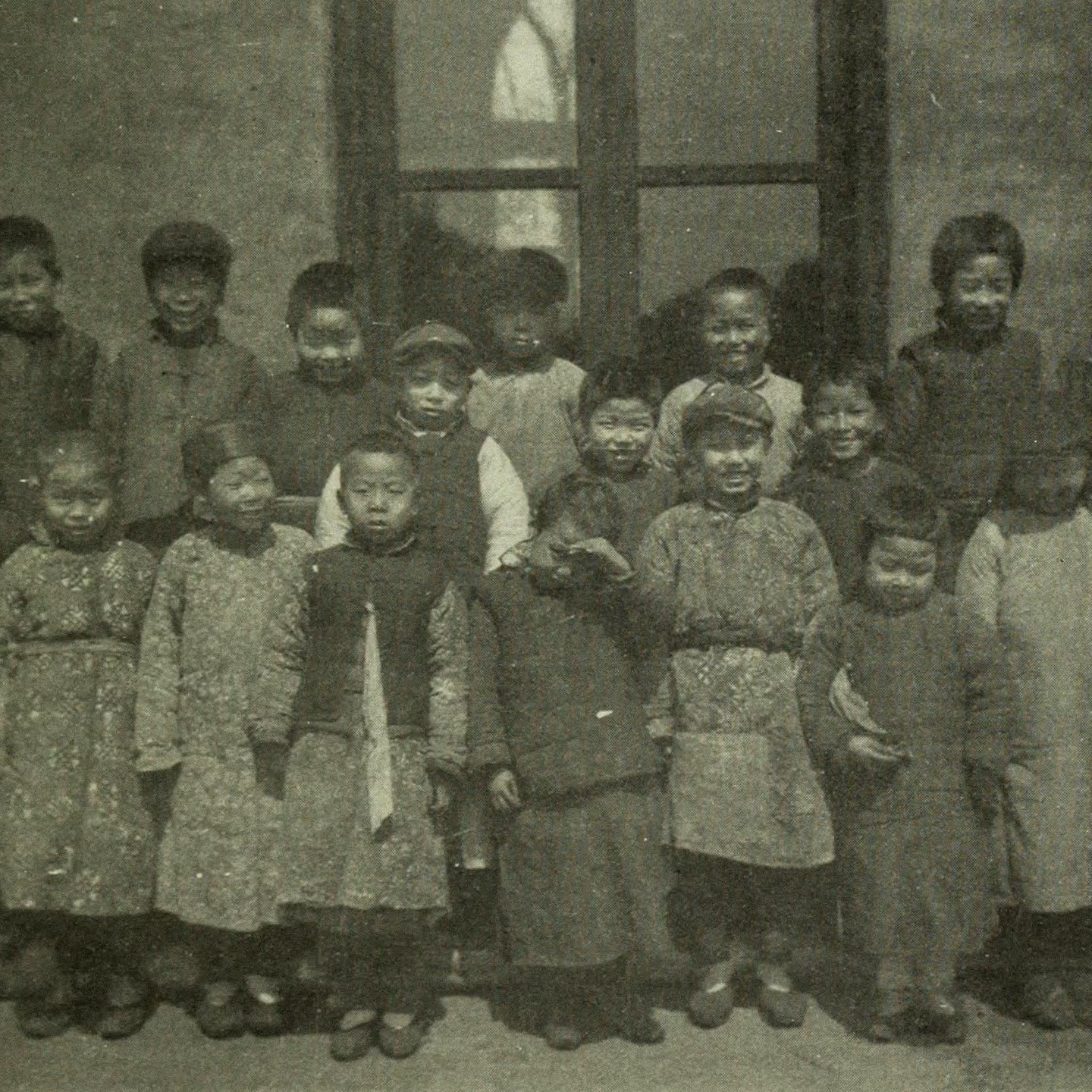
Faith Through Suffering
Unfortunately, more suffering soon came to the Taylor home. Just a year after returning to China, Hudson and Maria lost their eight-year-old daughter, Gracie, to meningitis.
Yet even in grief, Hudson clung to God. In 1869, Hudson experienced what he called “The Exchanged Life” — a spiritual awakening in which he realized he had been striving in his own strength. Instead, God invited him to rest in the finished work of Christ. It was a profound and transformative spiritual season, preparing him for the trials yet to come.
The following year, tragedy continued. In 1870, Hudson’s son Samuel died on the Yangtze River. That July, his wife Maria gave birth to another son, who died thirteen days later. Three days after that, Maria died from tuberculosis. Heartbroken and overwhelmed with grief, Hudson returned to England.
New Challenges
In 1871, Hudson married a fellow missionary named Jenny Faulding. Together, they continued to travel back and forth from China to England, both to care for their children and to recruit more missionaries. When Jenny gave birth to stillbirth twins in 1873, Hudson grieved the loss of his children, and the following year, he experienced a spinal injury, completely paralyzing him for months. Yet despite these personal sorrows, the CIM continued to flourish. Hudson continued to work for the advancement of the gospel in China until his final days.
In 1899, the Boxer Rebellion swept through China, killing 58 CIM missionaries and 28 children. Although this loss affected him deeply, Hudson did not respond with anger but continued to love and serve the Chinese people. He passed off the leadership of the CIM in 1902, and two years later, his wife of thirty years died.
In 1905, Hudson Taylor’s ministry came to an end when died at age 73. He was buried in Xinjiang, China, next to his wife, Maria.
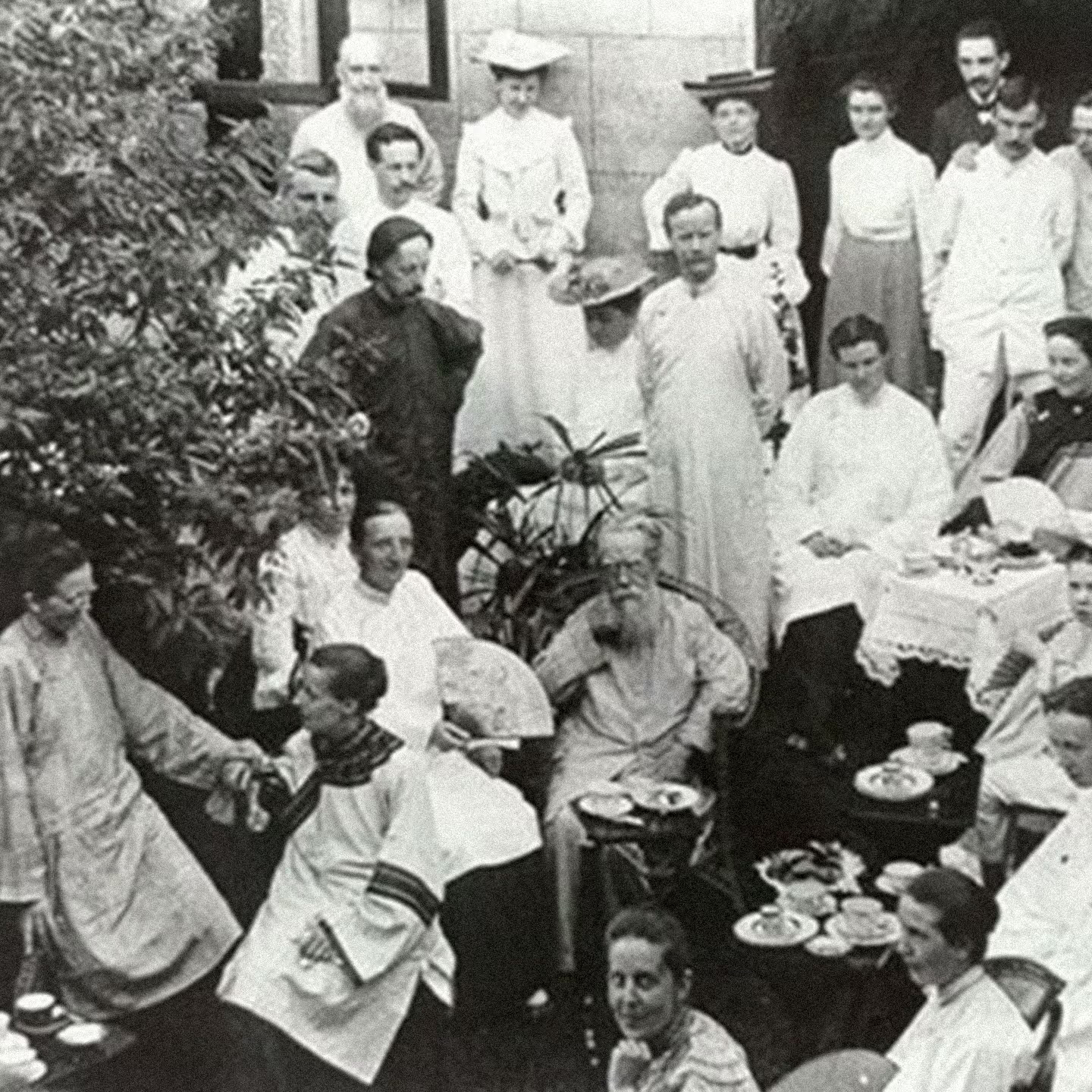
Legacy
Hudson Taylor’s ministry has touched millions of lives for the gospel. At the time of his death, CIM supported 500 missionaries across all 18 provinces of China, starting 125 schools and establishing 300 stations of work. The organization sent missionaries like C.T. Studd, and inspired missionaries, such as Amy Carmichael and Eric Liddell.
Although his life was marked by hardship, Hudson Taylor continued to trust in the God who provides. He knew that suffering and tragedy were not the end of his story, discovering that God gives His children the strength to preserve—whether through conflict, stress, or sickness. Through Hudson Taylor, God spread a wave of gospel ministry throughout China that endures to this day.
“God uses men who are weak and feeble enough to lean on him.” — Hudson Taylor
Additional Resources
- Read China's Millions.
